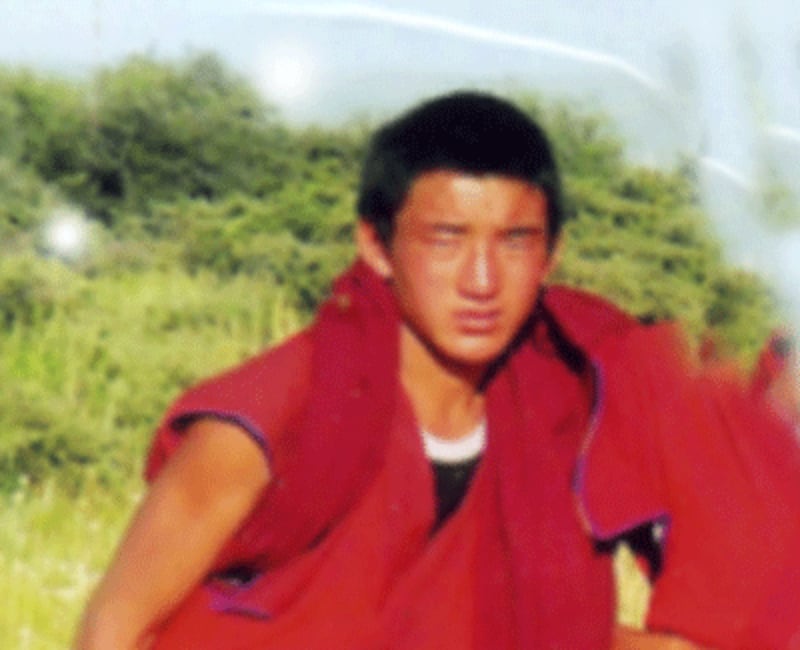Recent self-immolations by desperate Tibetan monks from a monastery under siege signal an alarming trend and highlight unrelenting Chinese actions to curb religious rights, according to human rights groups and experts.
"This is an extremely worrying and absolutely unprecedented trend that we hope will end," London-based Free Tibet Director Stephanie Brigden said after Monday's incident in which a fifth Tibetan monk set himself on fire this year.
The monk, identified as Kalsang Wangchuk, 17 or 18 years old and from Kirti Monastery in southwestern Sichuan province's Ngaba (in Chinese, Aba) prefecture, set fire to himself near the vegetable market in Ngaba town.
His upper body was seen to be badly burned and security forces, according to some accounts, began beating him after the flames were extinguished and pointed weapons at an angry crowd.
Three other monks from Kirti monastery had set themselves ablaze earlier in a trend that began in March this year and that led to a security crackdown on the monastery. According to Free Tibet, only one monk in Tibet was known to have set fire to himself before this year.
Chinese police and military personnel had then moved in to occupy Kirti monastery, and around 2,000 of its monks now live elsewhere, according to Jampel Monlam, head of the Tibetan Center for Human Rights and Democracy based in the northern Indian town of Dharamsala.
"There are Chinese soldiers and police inside the monastery. There are plainclothes police there, and they frequently carry out patriotic and law enforcement propaganda campaigns," he said.
'Political re-education'

Chinese authorities frequently carry out "political re-education" of Tibetan monks, who are put under pressure to renounce their allegiance to Tibet's exiled spiritual leader, the Dalai Lama, and pledge loyalty to the ruling Chinese Communist Party.
Jampel Monlam said that the number of monks and lamas at Kirti had dropped sharply in recent months, with many being sent away.
"A lot of monks and lamas have been kicked out, and there are only 500 or so monks left behind there," he added. "There used to be more than 2,500, and now there are only a few hundred. The rest remain outside [the monastery.]"
The self-immolation by the monks underscores the depressing situation in Kirti, the International Campaign for Tibet said, asking Beijing to review its Tibetan policies.
It "makes clear that only a change in China's policies can put an end to the cycle of desperation that has compelled these Tibetans to sacrifice so much," said the group's president, Mary Beth Markey.
"Since the self-immolation of young monk Phuntsog in March, Kirti monks have 'disappeared' and returned, broken by torture; several hundred of them have been removed for so-called 'legal education,' two laypeople have been killed in trying to protect the monks, and the presence of armed troops has made religious practice almost impossible," she said.
"Suicide is seen as the worst kind of taking of life and is prohibited according to Tibetan Buddhist principles, so their actions are a measure of the anguish these young monks feel."
The Free Tibet group's Brigden said China's response to the string of self-immolations has been a “failure.”
"We hope that China will recognize the failure of such measures to appease Tibetan grievances," she said.
Chinese Vice President Xi Jinping—the likely successor to President Hu Jintao, who must retire from running the Party in late 2012 and from the presidency in early 2013—visited Tibet in July to preside over celebrations marking 60 years since China gained control over the region.
Xi, in his first major speech on Tibet, vowed to crack down on "separatist activity" in the region and suggested that he will not ease Beijing's hard-line stance.
Police control

Meanwhile, the whereabouts and condition of Kalsang Wangchuk is not known as Ngaba town came under strict police control and curfew, with no one allowed to enter or leave the area.
Tibetans in Ngaba town declined to speak to RFA's Mandarin service on Tuesday, with some hanging up as soon as they heard who the caller was.
"I don't know about that incident over in Ngaba county," said one resident of the area before hanging up the phone.
"Sorry, we're really busy here," said another.
An employee who answered the phone at the Ngaba county police department declined to comment on the latest self-immolation.
"I'm sorry, I don't really know," he said. "If you want further information, you'll have to contact the legal departments directly."
Reported by Qiao Long for RFA's Mandarin service. Translated by Luisetta Mudie. Written in English by Luisetta Mudie and Parameswaran Ponnudurai.
